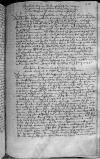Was in negst gehaltener Provincial Diet of Royal Prussia ⌊tagfarthProvincial Diet of Royal Prussia ⌋ zu Marienburg (Malbork), town and castle in northern Poland, Pomeranian Voivodeship, on the Nogat river, a branch of the Vistula at its delta, the capital of the Grand Masters of the Teutonic Order in Prussia (1309-1457), a voivodeship capital in Royal Prussia, which belonged to the Kingdom of Poland (1466-1772). Marienburg (taking turns with Graudenz (Grudziądz)) was the venue for the Provincial Diets of Royal Prussia, which were chaired by the bishop of Ermland (Warmia)⌊MarienburgMarienburg (Malbork), town and castle in northern Poland, Pomeranian Voivodeship, on the Nogat river, a branch of the Vistula at its delta, the capital of the Grand Masters of the Teutonic Order in Prussia (1309-1457), a voivodeship capital in Royal Prussia, which belonged to the Kingdom of Poland (1466-1772). Marienburg (taking turns with Graudenz (Grudziądz)) was the venue for the Provincial Diets of Royal Prussia, which were chaired by the bishop of Ermland (Warmia)⌋ von den hern Council of Royal Prussia the most important local authority in Royal Prussia. It consisted of two bishops (of Ermland (Warmia), who served as the Council’s president, and of Kulm (Chełmno)), three voivodes (of Kulm, Marienburg (Malbork), and Pomerania), three castellans (of Kulm, Elbing (Elbląg), and Gdańsk (Danzig)), three chamberlains (of Kulm, Marienburg, and Pomerania), and representatives of the three Great Prussian Cities – Gdańsk, Thorn (Toruń), and Elbing (ACHREMCZYK 2016, p. 17-18)⌊redtenCouncil of Royal Prussia the most important local authority in Royal Prussia. It consisted of two bishops (of Ermland (Warmia), who served as the Council’s president, and of Kulm (Chełmno)), three voivodes (of Kulm, Marienburg (Malbork), and Pomerania), three castellans (of Kulm, Elbing (Elbląg), and Gdańsk (Danzig)), three chamberlains (of Kulm, Marienburg, and Pomerania), and representatives of the three Great Prussian Cities – Gdańsk, Thorn (Toruń), and Elbing (ACHREMCZYK 2016, p. 17-18)⌋ neben uns / wegenn Royal Prussia (Prussia Regalis), region, part of Prussia annexed to the Kingdom of Poland in 1466 under the provisions of the Second Peace of Thorn⌊dieser landeRoyal Prussia (Prussia Regalis), region, part of Prussia annexed to the Kingdom of Poland in 1466 under the provisions of the Second Peace of Thorn⌋ und unser Inhabitants of Royal Prussia ⌊underthannInhabitants of Royal Prussia ⌋ nutz und bestenn / in abfertigung der statlichenn botschaft an die Sigismund II Augustus Jagiellon (Zygmunt II August) (*1520 – †1572), 1529-1572 Grand Duke of Lithuania (ruled from 1544); 1530-1572 King of Poland (crowned vivente rege (ruled from 1548, after the death of his father); son of Sigismund I Jagiellon and Bona Sforza⌊jungeSigismund II Augustus Jagiellon (Zygmunt II August) (*1520 – †1572), 1529-1572 Grand Duke of Lithuania (ruled from 1544); 1530-1572 King of Poland (crowned vivente rege (ruled from 1548, after the death of his father); son of Sigismund I Jagiellon and Bona Sforza⌋ und Sigismund I Jagiellon (Zygmunt I) (*1467 – †1548), King of Poland and Grand Duke of Lithuania (1506-1548); Duke of Głogów (Glogau) (1499-1506), Duke of Opava (1501-1506), Governor of Silesia (1504-1506); son of King Kazimierz IV Jagiellon and Elisabeth of Austria⌊alte ko(nigliche) m(ajeste)tSigismund I Jagiellon (Zygmunt I) (*1467 – †1548), King of Poland and Grand Duke of Lithuania (1506-1548); Duke of Głogów (Glogau) (1499-1506), Duke of Opava (1501-1506), Governor of Silesia (1504-1506); son of King Kazimierz IV Jagiellon and Elisabeth of Austria⌋, und zu deren ausrichtung von allenn Royal Prussian Estates ⌊stendennRoyal Prussian Estates ⌋ dieses koninglichen orts vorwilligten und angesatzter steur ist geschlossenn worden, / wirstu aus hiebei vorwartem unserm edict und bovel vornemenn. / Welches, dieweil esz sher notwendig, und viel daran gelegenn ist, / wollenn und bovelenn wir, / das esz aufs erste von dir publiciirt, / und allenn unsernn Inhabitants of Royal Prussia ⌊underthannInhabitants of Royal Prussia ⌋ in unserm camerampt under dir, wes standes die sein, / geistlich ader vom adel, / so wol under uns gesessenn, / als die anderswo wonen, und dennoch gutter und written over s⌈sdd written over s⌉er uns habenn, auch unser stadt n(amhaftigen) radt und einwonernn, / neben allen freienn schultzenn und paurenn daselbest, / kundt gethann und vorgelesenn werde, / auf das in ernanter und angesatzter czeit solche steur in unserm bovelich ausgedrucket / von einem iderenn / in deine hende und vorwarung, / uns weiter zuuberantwortenn, / moge abgelegt werden. / Daran geschicht von dir unser volko(m)ne meinung und ernster bovel. /

 AAWO, AB, A 2, f. 58r
AAWO, AB, A 2, f. 58r